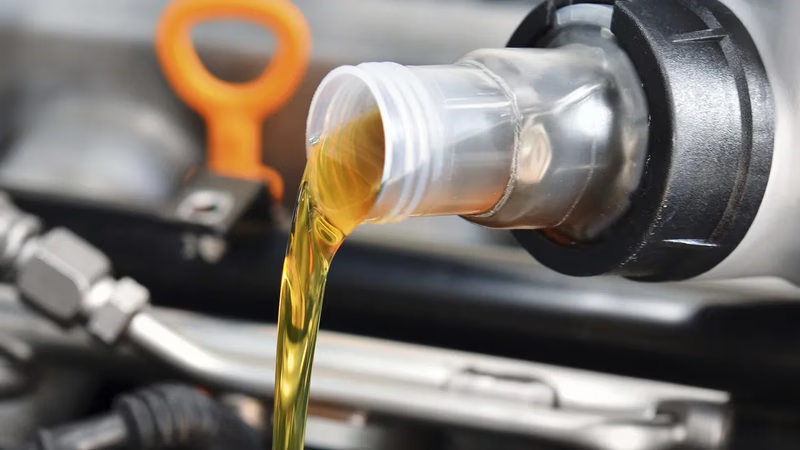
How does B2B trade impact the engine oil market in West Asia?
Engine oil, a critical lubricant for automotive and industrial machinery, plays a vital role in ensuring efficient performance and durability. In West Asia and the Middle East, the engine oil market is heavily influenced by regional trade dynamics, with strong ties to the petroleum industry. The trade of base oil—a primary component of engine oil—and its derivatives such as bitumen, paraffin, and petroleum coke, serves as the backbone for many regional import/export activities. West Asia is a hub for engine oil production and distribution, with verified exporters and importers utilizing B2B marketplaces to connect with buyers across Asia. Platforms specializing in commodity trade within the Middle East offer regional product listings and market insights, fostering business networking opportunities. These tools are crucial for understanding the nuances of engine oil quality, pricing, and types, which vary based on viscosity grades and applications in cars, heavy-duty vehicles, and industrial machinery. Base oil, the foundation for manufacturing engine oil, is brokered extensively in Southwest Asia. Key players in the region ensure a steady supply chain for production facilities, with trade advertising platforms promoting transparency and verified transactions.
Similarly, bitumen and petroleum coke markets in West Asia are significant for road construction and industrial energy needs, with competitive pricing influenced by global crude oil trends. Paraffin, another petroleum byproduct, is vital for both solid and liquid applications. Its trade in the Middle East intersects with broader commodity flows, emphasizing the importance of intermediaries who bridge supply-demand gaps. Aritral, an AI-driven B2B platform, simplifies the trade of engine oil and its components, providing services like product listing, AI-powered marketing, and direct communication tools to support global sales. With verified profiles, Aritral fosters trust and efficiency, enabling businesses to capitalize on the robust trade opportunities in West Asia"s oil-based industries. "
-
 Mohammad Javad Baqeri 1 months ago
Mohammad Javad Baqeri 1 months ago Iran
Aluminum, iron and steel, pickles, dried fruits and groceries, saffron and spices, metal waste, gold, tar, dairy products, jam and honey, copper, silv
Iran
Aluminum, iron and steel, pickles, dried fruits and groceries, saffron and spices, metal waste, gold, tar, dairy products, jam and honey, copper, silv
I\m directly in contact with all those suppliers from Iran`Details
-
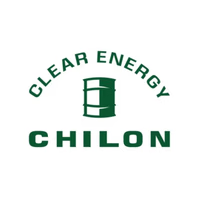 Llc \`Chilon Lubricants\` 4 days ago
Llc \`Chilon Lubricants\` 4 days ago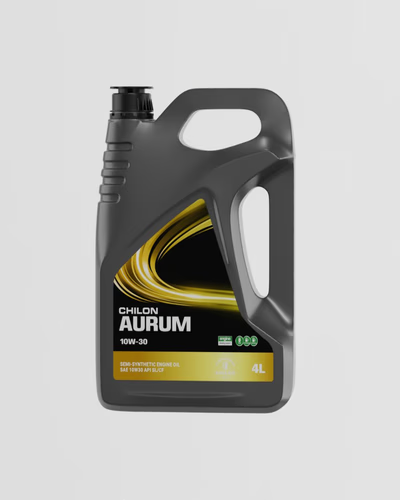 Uzbekistan
High-quality of car engine oils, motor oils and lubricants
Uzbekistan
High-quality of car engine oils, motor oils and lubricants
We specialize in the production of a wide range of high-quality motor oils and lubricants. Our products are designed to meet the needs of various indu...Details
-
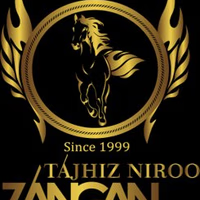 Tnzoil Company 3 days ago
Tnzoil Company 3 days ago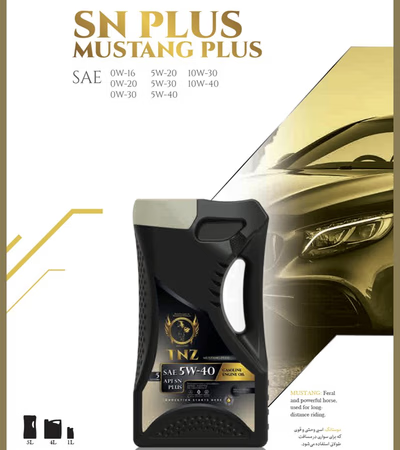 Iran
Types of Motor Oil, Industrial Oil, and Base Oil
Iran
Types of Motor Oil, Industrial Oil, and Base Oil
TNZ Company is a manufacturer and exporter of various types of motor oils and industrial lubricant products, as well as various types of base oils. M...Details
-
 Bayerol Mh Gmbh 6 months ago
Bayerol Mh Gmbh 6 months ago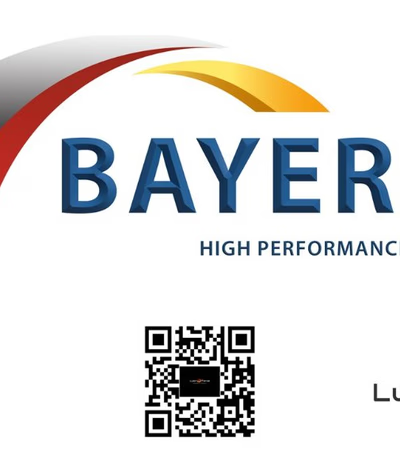 Germany
Bayerol
Germany
Bayerol
BAYEROL YOUR FIRST CHOICE FOR HIGH QUALITY LUBRICANTS Bayerol MH GmbH is a German company specializing in automotive lubricants. We are a young and m...Details
-
 Fatemeh 888 7 months ago
Fatemeh 888 7 months ago Iran
Bitumen
Iran
Bitumen
Greetings and respect, I am a supplier of various petrochemical materials, bitumen, and fuels that are offered in the Iranian stock market. To contact...Details
-
 Mj Trading 8 months ago
Mj Trading 8 months ago Bahrain
Base Oil
Bahrain
Base Oil
Superior quality: Refined to perfection to achieve maximum efficiency. High viscosity index: Ensures stable performance at varying temperatures. Excel...Details
-
 Amr Elhawary 11 months ago
Amr Elhawary 11 months ago Egypt
Synthetic oils and additives for oils and greases
Egypt
Synthetic oils and additives for oils and greases
I am considering introducing synthetic oils produced in Georgia to Egypt, as Egypt is a large market with many users. This also includes various types...Details
-
 Ahmadreza 4 days ago
Ahmadreza 4 days ago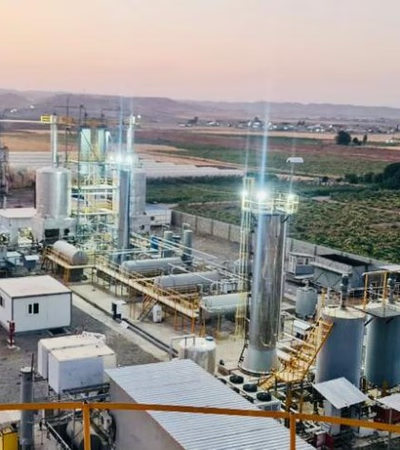 Iraq
Sale of bitumen, diesel and naphtha
Iraq
Sale of bitumen, diesel and naphtha
Bitumen producer with grades 6070 and 5070 in jumbo and bulk diesel producer with different standard naphtha producer with low sulfur and mercaptanDetails
-
 Karaveli Petrol Urunleri Ltd Sti 11 months ago
Karaveli Petrol Urunleri Ltd Sti 11 months ago Turkey
petroleum products, urea, sulfur, aluminium zinc
Turkey
petroleum products, urea, sulfur, aluminium zinc
petroleum products urea sulfur gasoline diesel crude oil aluminium zinc copperDetails
-
 The World Of Glory 3 days ago
The World Of Glory 3 days ago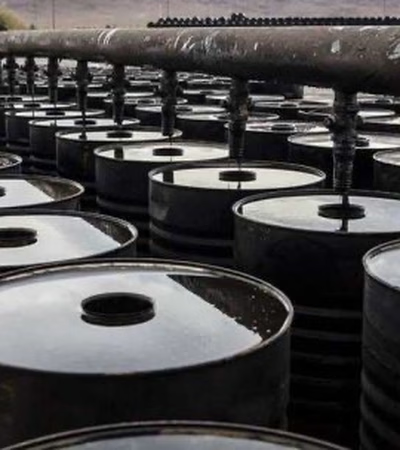 Oman
All types of bitumen, best quality, fast delivery, permanent cooperation
Oman
All types of bitumen, best quality, fast delivery, permanent cooperation
All types of bitumen, best quality Fast delivery, permanent cooperation Speed and quality are our assetDetails
-
 Yasir 12 months ago
Yasir 12 months ago Yemen
Precious Stones
Yemen
Precious Stones
I have relied on GodDetails
-
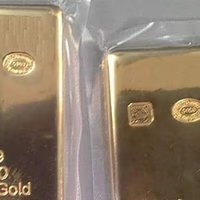 Kemal Ergi̇n 4 days ago
Kemal Ergi̇n 4 days ago Turkey
Gold Bullion
Turkey
Gold Bullion
1. Gold sales 2. Petrochemical products 3. EN 590 10 ppm, JET A-1, LPG, LNG etc.Details
-
 Arbenco Petrochemical Company 17 months ago
Arbenco Petrochemical Company 17 months ago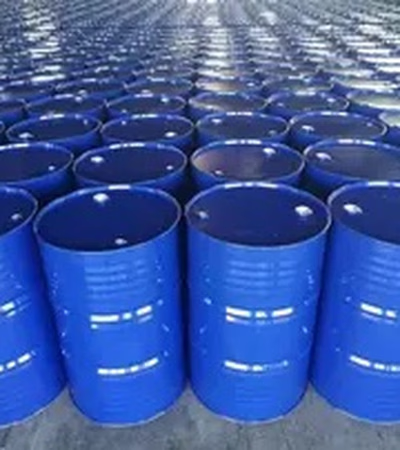 Bahrain
I have 50 thousand tons of methanol. Do you buy or do I have a customer for them?
Bahrain
I have 50 thousand tons of methanol. Do you buy or do I have a customer for them?
For sale: 50 thousand barrels of methanol, phone number: 0097339211616Details
-
Exploring Base Oil Trade in the Middle East and West Asia

Base oil, a fundamental raw material in the production of lubricants such as engine oil, holds significant importance in the Middle Eastern and West Asian commodity trade. Base oil serves as the backbone for various products, including bitumen, paraffin, and petroleum coke, making its trade dynamics critical to regional economic activity. In Southwest Asia, the brokerage of base oil thrives due to a robust network of verified exporters and importers facilitated by B2B marketplaces and trade platforms. These platforms enhance supply chain solutions by enabling direct communication between commercial players and promoting regional product listings. The engine oil market in West Asia underscores the increasing demand for high-quality base oil. The trade trends in this region reflect the growing integration of base oil into broader petroleum-based commodities, such as bitumen and asphalt. Bitumen, essential for road construction, and asphalt are heavily traded in the Middle East, aligning with infrastructure development goals. Similarly, petroleum coke (petcoke), another byproduct, is widely used in industrial applications, with key suppliers and manufacturers concentrated in West Asia.
Paraffin, available in liquid and solid forms, plays a pivotal role in the regional market. Derived from crude oil, its trade is expanding due to its versatile applications, ranging from candle production to industrial coatings. The Middle East and West Asia are evolving into hubs for paraffin intermediaries, further bolstered by efficient supply chain frameworks. Aritral, an AI-powered B2B trade platform, offers verified listings, market insights, and brokerage solutions, supporting commercial players in navigating the complexities of international trade for base oil and related commodities. By leveraging such platforms, businesses gain access to new markets, increased visibility, and streamlined operations in the engine oil and base oil sectors.
-
Bitumen and Asphalt Trade Insights in West Asia

Bitumen, commonly referred to as asphalt, plays a critical role in the commodity trade dynamics of West Asia and the Middle East. Derived from crude oil, bitumen serves as a key material in road construction and industrial applications. The Middle East, known for its rich petroleum reserves, is a significant player in the global bitumen market. The trade of bitumen and related petroleum products, such as base oil, paraffin, and petroleum coke, is facilitated by advanced B2B marketplaces and supply chain solutions. These platforms help verified exporters and importers connect efficiently, ensuring reliable transactions and optimized logistics. In the engine oil sector, bitumen and base oil are integral as raw materials. The demand for engine oil across West Asia has grown due to the region"s expanding automotive industry. B2B trade platforms provide market insights, regional product listings, and direct communication channels, allowing businesses to explore trends in engine oil trade.
Base oil, a primary component of engine oil, also sees robust demand, with its trade dynamics influenced by factors like pricing, quality, and supplier reliability. Petroleum coke, another derivative, is essential for industries such as cement and power generation. Manufacturers and suppliers across West Asia benefit from trade advertising platforms that boost visibility and networking opportunities. Similarly, paraffin, available in both liquid and solid forms, is widely used in packaging, pharmaceuticals, and cosmetics. Its trade in West Asia is supported by intermediaries specializing in regional logistics and market intelligence. Aritral, an AI-driven B2B trade platform, simplifies these transactions by offering tools like product listing, direct communication, and AI-powered marketing. This digital ecosystem enhances transparency, reduces barriers, and fosters growth in the Middle East commodity market. "
-
Engine Oil Trade Dynamics in West Asia and Middle East

Engine oil, a critical lubricant for automotive and industrial machinery, plays a vital role in ensuring efficient performance and durability. In West Asia and the Middle East, the engine oil market is heavily influenced by regional trade dynamics, with strong ties to the petroleum industry. The trade of base oil—a primary component of engine oil—and its derivatives such as bitumen, paraffin, and petroleum coke, serves as the backbone for many regional import/export activities. West Asia is a hub for engine oil production and distribution, with verified exporters and importers utilizing B2B marketplaces to connect with buyers across Asia. Platforms specializing in commodity trade within the Middle East offer regional product listings and market insights, fostering business networking opportunities. These tools are crucial for understanding the nuances of engine oil quality, pricing, and types, which vary based on viscosity grades and applications in cars, heavy-duty vehicles, and industrial machinery. Base oil, the foundation for manufacturing engine oil, is brokered extensively in Southwest Asia. Key players in the region ensure a steady supply chain for production facilities, with trade advertising platforms promoting transparency and verified transactions.
Similarly, bitumen and petroleum coke markets in West Asia are significant for road construction and industrial energy needs, with competitive pricing influenced by global crude oil trends. Paraffin, another petroleum byproduct, is vital for both solid and liquid applications. Its trade in the Middle East intersects with broader commodity flows, emphasizing the importance of intermediaries who bridge supply-demand gaps. Aritral, an AI-driven B2B platform, simplifies the trade of engine oil and its components, providing services like product listing, AI-powered marketing, and direct communication tools to support global sales. With verified profiles, Aritral fosters trust and efficiency, enabling businesses to capitalize on the robust trade opportunities in West Asia"s oil-based industries. "
-
Paraffin Trade Insights in West Asia and the Middle East

The paraffin trade in West Asia and the Middle East has emerged as a significant commodity market, driven by its diverse applications in industries such as cosmetics, pharmaceuticals, and manufacturing. Paraffin, derived primarily from petroleum, comes in both liquid and solid forms, categorized under types like paraffin wax (HS Code 271290) and paraffin oil (HS Code 271210). West Asia’s extensive petroleum reserves make it a global hub for paraffin production, with verified exporters and importers leveraging regional B2B marketplaces to facilitate trade. Commodity-focused platforms in the Middle East, such as Aritral, have simplified international trade by offering supply chain solutions and verified listings of paraffin products. These platforms enable businesses to access market insights, streamline logistics, and build robust business networks. Liquid paraffin, commonly used in pharmaceuticals, and solid paraffin, prevalent in candle-making and coatings, are highly demanded across Asia. The paraffin market intertwines with other petroleum-based commodities like base oil, bitumen, and petroleum coke. Base oil, a precursor to engine oil, is essential in lubricant production, while bitumen dominates the construction sector.
These interconnected markets benefit from B2B advertising platforms that enhance visibility and trust among regional stakeholders. The rise of AI-driven trade solutions further impacts commodity markets in West Asia, ensuring transparency and efficiency in paraffin and other petroleum derivatives. B2B marketplaces foster direct communication between manufacturers and buyers, promoting high-quality paraffin production and distinguishing premium-grade paraffin from substandard variants. West Asia’s trade landscape continues to evolve, emphasizing the role of verified exporters and importers in shaping global supply chain dynamics. Aritral, as an AI-powered B2B platform, exemplifies how digital tools transform commodity trading in the region, offering services like product listings, marketing insights, and global sales assistance to streamline paraffin and related markets.
-
Petroleum Coke Trade Insights in West Asia

Petroleum coke (Petcoke), a solid carbon-rich material derived from oil refining, plays a vital role in commodity trade across West Asia and the Middle East. The region is a significant producer of petcoke, with its production driven by the abundance of crude oil and advanced refining capacities. Middle Eastern petcoke, also known as petroleum coal, is utilized in industries such as cement, steel, and aluminum, owing to its high calorific value and cost-effectiveness compared to traditional fuels. However, its environmental impact and fluctuating market prices remain challenges. B2B marketplaces in Asia, including platforms like Aritral, are transforming the trade dynamics of petcoke and related commodities such as engine oil, base oil, bitumen, and paraffin. Verified exporters and importers on these platforms provide streamlined supply chain solutions, ensuring reliable and transparent transactions. These trade advertising platforms also offer regional product listings and market insights, enabling businesses to navigate pricing trends and demand fluctuations effectively. The engine oil market, intrinsically linked to base oil, paraffin, and bitumen trade, is similarly impacted by B2B dynamics.
For instance, base oil, a key raw material for engine oil production, sees significant demand in West Asia. Supply chain solutions facilitate its movement across borders, while regional product listings and verified suppliers enhance accessibility. Bitumen and paraffin, essential for construction and industrial applications, also benefit from similar supply chain efficiencies provided by trade platforms. Petroleum coke suppliers in West Asia and petcoke manufacturers in the Middle East are leveraging these platforms to expand their reach. Market insights reveal that West Asia’s production rate of petroleum coke is steadily growing, driven by industrial demand and competitive pricing. As the global commodity trade evolves, businesses must continuously adapt to shifting market dynamics, supported by tools like AI-powered B2B platforms. Aritral offers services such as product listing, direct communication, and AI-powered marketing to enable seamless global trade operations.
-
Application of engine oil
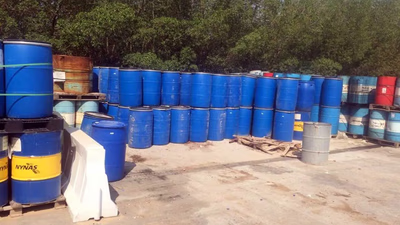
Engine oil plays a crucial role in the lubrication and protection of automotive and industrial engines. It forms a protective film between moving parts, reducing friction and wear, which minimizes engine damage and extends lifespan. Engine oil also aids in cooling and cleaning by carrying away heat and contaminants. Various types of machinery, including generators, pumps, and heavy-duty equipment, rely on engine oil for optimal performance. Different applications necessitate specific grades of engine oil as per manufacturers" recommendations to ensure proper lubrication. Regular maintenance, including timely oil changes, is essential for maintaining performance and longevity. The primary functions of engine oil include lubrication to minimize friction, cooling internal components to prevent overheating, sealing between pistons and cylinders, and cleaning to reduce rust and sludge buildup. Marine engines require specialized oils that withstand harsh conditions like humidity and saltwater exposure.
Additionally, agricultural machinery, construction equipment, recreational vehicles (RVs), and motorcycles depend on tailored engine oils for efficient operation under demanding conditions. Understanding the specific needs of each application is vital for selecting the right engine oil. "
-
Prices and production of motor oils in West Asia (Middle East)
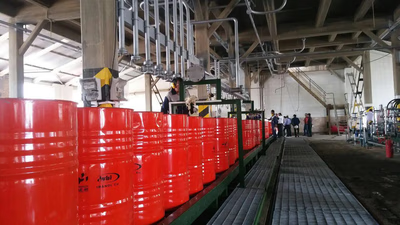
Motor oil production in West Asia is closely linked to global crude oil prices, as motor oils are derived from crude oil. Countries like Saudi Arabia, Iran, Iraq, and the UAE are significant players in this market. Their domestic oil production levels can influence the availability of crude oil for refining into motor oils, impacting production costs and prices. OPEC"s decisions on production levels also play a crucial role in shaping global oil prices, which directly affect motor oil pricing strategies in the region. The demand for motor oils globally is another critical factor; fluctuations can lead to changes in production levels and pricing strategies among West Asian producers. The region boasts advanced motor oil industries with established facilities that compete for both domestic and international market share. Factors such as government regulations, technological advancements, and varying regional market dynamics further influence production capabilities and pricing structures. Investments in refining infrastructure have enhanced the ability of these countries to process crude oil into high-quality motor oils efficiently.
Additionally, the diverse range of engine oils available—varying by type, viscosity, quality, and brand—contributes to a wide price spectrum in the market. As West Asia continues to innovate and adapt to changing market demands, its role as a key player in the global motor oil industry remains significant. "
-
Types of engine oils
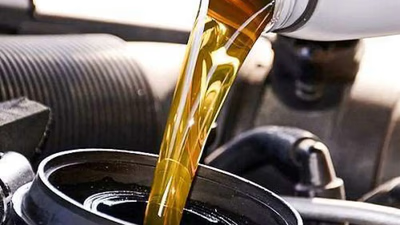
Engine oils are essential for the lubrication and protection of various engine types, including gasoline, diesel, and high-performance engines. Each type of engine oil is formulated to meet specific operational demands, such as temperature extremes and high RPMs. Conventional mineral oils provide basic lubrication but may fall short under extreme conditions. In contrast, synthetic oils offer superior performance with enhanced thermal stability and oxidation resistance, making them ideal for modern and high-performance engines. Motorcycle oils cater to the unique requirements of two-stroke and four-stroke engines, while racing oils are designed for extreme conditions encountered in motorsports. Diesel engine oils contain additives to manage soot and wear due to higher compression ratios. The market offers a range of options including semi-synthetic blends that combine the benefits of both synthetic and conventional oils. High mileage oils are tailored for older engines, helping to condition seals and reduce oil consumption.
Engine oil classifications include Group III (mineral), Group IV (PAO), and Group V (esters). Industry standards from organizations like API ensure that these oils meet performance requirements for viscosity, oxidation resistance, and wear protection. The diverse market allows consumers to select products based on their specific needs, preferences, and budget.
-
What is engine oil?

Engine oil, essential for internal combustion engines, serves multiple functions including lubrication, cooling, and cleaning. It reduces friction and wear between moving parts, preventing damage and ensuring longevity. Engine oils are derived from mineral or synthetic bases, enhanced with additives for improved performance. Modern vehicles often feature oil life monitoring systems that optimize oil change intervals based on engine conditions. Synthetic oils outperform conventional oils in extreme temperatures and offer better fuel efficiency but come at a higher cost. Proper viscosity is crucial; it affects flow and protection under varying temperatures. Regular oil changes are necessary to maintain engine health. Additionally, used engine oil poses environmental risks if not recycled properly, necessitating adherence to disposal regulations. Understanding the specific requirements for different engines is vital for optimal performance.
-
Engine oil quality
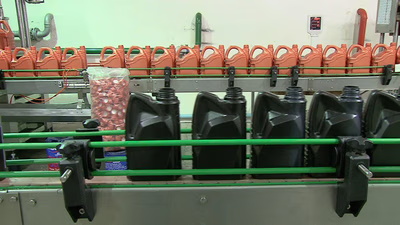
Engine oils are categorized by viscosity grades like 5W-30 and 10W-40, indicating their flow resistance at varying temperatures. High-quality oils maintain viscosity, ensuring effective lubrication and protection under diverse conditions. They can be mineral or synthetic, with synthetic oils generally outperforming mineral ones in terms of lubrication, thermal stability, and oxidation resistance. Quality assessment involves performance testing for lubrication effectiveness, wear protection, and compatibility with emission systems. Selecting the right engine oil is crucial for maintaining engine health and efficiency; poor quality oil can lead to significant engine damage. Key considerations when purchasing include avoiding oils with black spots or unpleasant odors, checking for standard logos, ensuring freshness, and examining packaging quality. High-quality oils contain a balanced additive package that enhances performance by preventing sludge formation and reducing wear. The American Petroleum Institute (API) sets standards for engine oils; certification indicates compliance with industry requirements.
Original Equipment Manufacturers (OEMs) specify oil requirements to ensure compatibility with their engines. Adhering to international standards like ILSAC or ACEA further signifies a product"s quality. "


























